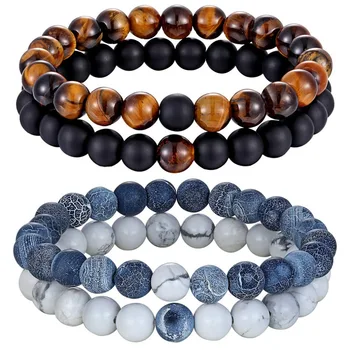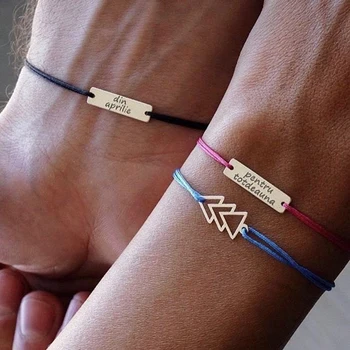Friendship bracelet
A toxic friendship? Here’s what to look for (and how to deal with it)
Friends help make life more meaningful. They provide social and emotional support, ease feelings of loneliness, and help you feel happier and more satisfied with life.
Maintaining social connections can even extend your lifespan and reduce the risk of mental and physical health problems, including depression and hypertension.
Some friendships may not have such a positive effect. Others can be downright toxic.
Toxic friendships can take many forms, but they usually vdrain you mentally and tend to bring you down instead of strengthening you.
Are you wondering how to recognize a toxic friendship? Not sure how to deal with it or how it can affect you? We’re here to help with 25 tips for recognizing and dealing with friends who do more harm than good.
Table des matières
What a toxic friend does
Everyone has good days and bad days. On the bad days, kindness doesn’t always come easily, even with loved ones. So how do you tell the difference between a truly toxic friend and someone who is just having a bad day?
Bad day or bad vibes?
A good friend who is having a bad day may attack you or seem distant, but will probably apologize once things settle down.
Toxic friends, on the other hand, tend to follow a pattern that never really fades. They won’t show much regret or willingness to change, even if they realize they’ve wronged you.

Here are some other things a toxic friend can do:
Putting you down
Friends often joke around with each other, and a little good-natured teasing doesn’t mean your friendship is toxic, especially if you’re laughing too.
When a friend regularly puts you down and makes you miserable, whether they use more subtle belittling tactics or direct insults, your friendship is probably not healthy.
Gossiping
You confided something to a friend and the next day your entire social circle knows about it.
Everyone can make a mistake and say things they shouldn’t. Toxic friends canappear to enjoy spreading secrets, even when you ask them to keep personal information to themselves.
A person who constantly breaks your trust probably doesn’t care much about your feelings.
Apologizing insincerely
When you criticize her for her behavior, she ignores your distress or throws a casual “Sorry.”
Instead of taking the time to consider your point of view, they say “I’m sorry you feel that way” or follow up their apology with a defensive “but.”
You know how it is: “I’m sorry I hurt your feelings, but it was just a joke.”
These non-excuses suggest that the person doesn’t really care about how their actions affect you.
Make you nervous
Unpredictability alone does not necessarily indicate that someone is toxic, but when their reactions can cause harm or come across as abusive, it is wise to act with caution.
No one is entirely predictable, but it is reasonable to expect someone you trust to express their emotions in a safe and healthy way most of the time.
She may get extremely irritated and yell at you for little things, like forgetting to turn off the TV or not returning a jacket she lent you. Then, the next moment, they act like nothing happened.
If you never know how they’re going to react, you’ll have a hard time feeling comfortable with them.
They leave you unsettled
Spending time with a close friend should make you feel good, in general. Maybe spending time with a particular friend makes you feel uncomfortable or upset.
You may not even have a good explanation for it, but when you leave him or her, you feel bad about yourself.
You may not even have a good explanation, but when you leave him or her, you feel more relieved than disappointed, and you don’t look forward to spending time with them.
If you notice this sense of destabilization, consider examining your friendship for other signs that things are not quite right.
He compares you to other people
Do you have a friend who likes to point out that you’re not up to par with their other friends? Maybe your apartment is smaller than X’s and it’s less fun to hang out with you. Or maybe dressing more like Y would make you cooler.
Everyone has their own characteristics and differences, and a good friend will recognize this.They won’t compare you to others or imply that you are inferior to another person.They certainly won’t use peer pressure to make you do things you would rather not do either.
They put themselves front and center - always
Have you ever had a fair-weather friend? They show up when things are going well or when they need something, but when you are in trouble, you can’t reach them at all.
Some friends can talk for an hour about their recent problems. When they’re done venting, they offer a simple “How about you?” before quickly bringing the conversation back to themselves.
True friends don’t just take.They also offer empathy for your concerns, in good, bad or in-between circumstances.

Try to change yourself
A person who tries to change things about you may not be the ideal friend.
A true friend understands that people have different personalities, and he accepts you as you are. If you ask him for advice on something you’d like to change, he may be supportive and encouraging, but he’ll probably wait for you to ask him rather than tell you what to do.
A true friend is a person who understands that people have different personalities.
Let’s say you struggle in social situations and want to improve your ability to meet new people. A good friend might suggest that you come to their next game night so that you can be introduced to a few other friends in a comfortable environment.
How do toxic friendships affect you?
Toxic friendships can have a pretty big impact on your overall well-being, and not in a good way. Spending time with people who don’t care about your feelings can end up affecting your emotional and physical health.
If you notice any of the following signs after spending time with a friend, you may want to consider reevaluating that friendship.
You feel alone and isolated
Spending time with friends should increase your sense of belonging.
A toxic friendship can leave you feeling ignored. You try to make plans, but you are excluded from group events and your messages go unanswered (unless, of course, they need you).
The person doesn’t seem to be a friend.
The person doesn’t seem to want to spend time with you, and the friendship doesn’t fulfill you or feel like a friendship at all.

Your stress increases
Stress reduction is one of the main benefits of strong friendships. Seeing friends won’t always make you feel 100% better, but you’ll probably notice some improvement.
A toxic friend, far from helping relieve stress, can make it worse. He may say or do things that upset you when you spend time together, for example.
Even when you’re not with him, you may spend a lot of time rethinking your negative interactions, which can make you tense, irritable, or even downright awful.
You don’t feel supported
True friends offer support when you need it. Of course, this support is not always tangible. At the very least, friendship usually involves empathetic listening and validation of distress and pain.
In a toxic friendship,you never feel this support or compassion. You feel minimized when they ignore your problems or outright ignored if they never respond to your messages or requests for help.
In short, it’s not there for you when you need a friend the most.
Your self-confidence and self-esteem take a hit
When someone consistently puts you down and treats you poorly, you may begin to accept this behavior and no longer hope for better.
As you begin to believe their put-downs and doubt your own strengths and abilities, your self-esteem may begin to decline.
You make yourself responsible for their behavior
Another consequence of manipulation? You begin to think you are in the wrong.
When he picks on you, you may believe that you deserve it. You may decide that he never offers you support because you ask for help too often. You then try to make up for it by stepping in whenever they need something.
You may even feel grateful that they spend time with you because, after all, they have pointed out so many of your flaws.
You often feel unbalanced
People who behave in toxic ways often resort to manipulation to get what they want. Manipulation often feels like something is wrong, even if you can’t identify exactly what.
You may feel like you never know what to say or do. The person may be mocking you in subtle ways or openly mocking you, leaving you unsure of the sincerity of what they are saying.
Their reactions (or the way they react) may be different.
Their reactions (or overreactions) can throw you off further. Sometimes they laugh, sometimes they yell. Not knowing what’s going to happen can make you so confused that you don’t know how to act except with extreme caution.
This discomfort can spill over into other aspects of your life, making you nervous and easily upset.
Your other relationships suffer
A toxic friendship can slowly but surely begin to poison other close relationships.
When you begin to doubt yourself, you may see yourself as a bad friend. Even if you don’t start to doubt yourself, you may find it hard to trust others. You may wonder if everyone sees you as flawed, annoying, or uncooperative and start avoiding people as a result.
This may prevent you from seeking support from people who truly care about you, which further isolates you and leaves you alone.
So, what now?
You’ve realized that your friendship is toxic, but what to do now?
You have two main options. First, you can try talking to your friend. He or she may not realize how unpleasant the behavior is. If you want to save the friendship, this may be a good first choice. The other choice is to end the friendship.
The tips below can help you take a safe and healthy path, whichever one you choose.
It is normal to want to offer a second chance...
Maybe they weren’t always toxic or don’t understand how their actions affect you. Some people need a little more support.
If they are behaving in a self-centered way without being blatantly malicious,talking to them about the impact of their behavior might make things better.
Use “I” statements and other productive communication methods to start a dialogue. Be open about how you feel about their behavior and consider setting boundaries for future interactions.
For example: “I feel hurt when I hear negative comments about my hair or clothes. In the future, please don’t make fun of my style choices.”
...but it's not always the best idea
If the friendship isn’t having a positive impact for you, and your conversation with them hasn’t helped, it may be time to end it. The same is true for friendships that spill over into the realm of violence.
You can tell someone how their actions affect you, but you can’t make them change. She has to do it on her own, and not everyone is willing to make that effort.
The person can promise to change her behavior.
The person may promise to change and treat you better temporarily. But if he or she starts putting you down again or engaging in other toxic behaviors, it’s best to move on.
Take some space for yourself
If you spend a lot of time wishing a friend would treat you better, why not take a break for a while and see what changes?
Time away from that friendship can help you sort through your feelings and clarify your next steps. You can also see what your life looks like without this person.
Maybe things get significantly better and you feel much better when you don’t have to worry about seeing her. If that’s the case, that’s a good reason to consider ending the friendship.

Fix limits
If you want to try to maintain the friendship, boundaries are essential.
Make it clear that you will not accept certain behaviors, such as yelling, lying, gossiping, or abandoning plans without explanation.
You may consider explaining how these behaviors affect you and how you will respond.
For example: “I don’t like being put down, so if you keep making jokes at my expense, we won’t be able to date.“
Practice ahead of time
Once you know you need to end the friendship, let her know.
It is often best to do this in person. Choose a public place that also offers privacy, such as a park or other neutral location. If you feel unsafe, you can also call or write them a letter. Just try to avoid ending a friendship via text message, if possible.
Before the discussion, write down what you want to say. Are you going to explain your reasons or just say that the friendship is no longer working for you? Organizing your thoughts and practicing ahead of time (by yourself or with someone you trust) can build your confidence and help you stay true to your decision.
Be direct
Although the level of detail you provide may depend on the circumstances or your history with this person, leave no ambiguity about the status of your friendship.
She may not want to end the friendship, so she may cut you off or try to turn the tables to make you feel guilty. Try not to react, even if they react with anger or aggression. Reaffirm your decision calmly (but firmly) and walk away.
Think twice before you get back in touch
If you decide to cut off contact, trust your instincts and avoid making contact or responding to attempts to contact.
Over time, you might think about the good times you shared and wonder if they’ve changed.Remember why you ended your friendship.Restarting it could make you just as unhappy, so it’s best to let some time pass before considering resuming it.
People can change, certainly, and if your friend offers an apology that seems sincere, you can try to renew the friendship. But take it slow to protect yourself.
Open up to others
Being trapped in a toxic friendship can make you feel self-conscious, confused, or distrustful of others. If you’ve drifted away from other friends, you may find it hard to reconnect.
You probably have good friends who really want to support you. Reaching out to them and explaining the situation can help you recover those positive friendships, which can help you heal.
What if we had mutual friends?
If you and your toxic friend have mutual friends, you may be concerned about their reaction. Don’t feel pressured to give more details than you want.They may already know about the situation.
You can simply say, “I have decided to end this friendship because it was negatively impacting my well-being,” or something like that.
Take care of yourself
Once you’ve ended a toxic friendship, take time to focus on yourself.
You’ve been through something painful and difficult, so it’s perfectly reasonable to need some time to heal.
Take care of yourself by:
- spending time with your loved ones
- taking time to get quality sleep
- engaging in enjoyable hobbies.
Fill your life with positive things and ask for help if you need it.
Conclusion
End a toxic friendship can be difficult, and it’s perfectly normal to need a little extra support at any point in the process.A therapist can help you begin to explore your feelings about the friendship and consider solutions to end or repair it.











 (5 / 5)
(5 / 5)